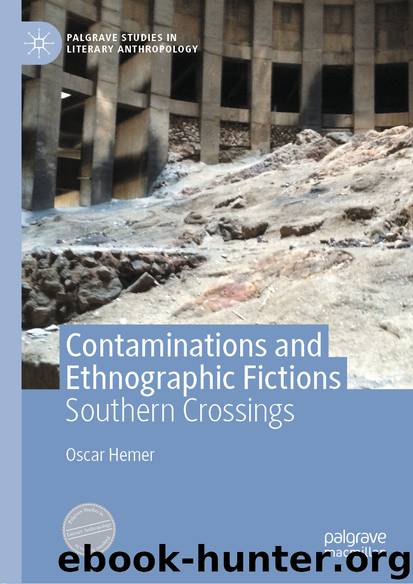Contaminations and Ethnographic Fictions by Oscar Hemer

Author:Oscar Hemer
Language: eng
Format: epub
ISBN: 9783030349257
Publisher: Springer International Publishing
Back to the Sense(s)
Zehasonlybeenawayover the week-end, as usual, but if feels like an entire week, or more. In fact, the break is an abyss, although ze pretends as if nothing has happened. And although ze senses that it must be obvious to everyone that ze is not hir ordinary self, nobody seems to notice; possibly because the group has dramatically changed as March turned April. More than half, maybe two thirds, are newcomers who have not as yet become completely accommodated with the routines. The male predominance prevails, but at last there is a black African constituency, so conspicuously absent during the first two months. Francis is the first new acquaintance. They already met, in Roskilde at a conference that ze co-organised, and even though they didn’t talk much then it is like meeting an old friend now.
Francis gives an open lecture on campus about “incompleteness”, and besides immediately striking a chord with hir own preoccupation with impurity it is a wonderful tribute to simplicity, which clearly puzzles the Director and the dignitaries of the Institute. Francis evokes one of the humblest and least prestigious Nigerian writers, Amos Tutuola, The Palm-Wine Drunkard. (The elaborate paper published a few months after his talk will be the first to draw hir attention to the notion of conviviality, as “a currency for frontier Africans”. If incompleteness is the normal order of things, natural or otherwise, conviviality invites us to celebrate and preserve incompleteness and mitigate the delusions of grandeur that come with ambitions and claims of completeness.2) They share an entire bottle of whisky one improvised evening in Francis’ apartment, when an unannounced load shedding impedes hir from returning to hir own, and that is surely the most invigorating intoxication ze has experienced in years.
Apart from Francis, there is Denis, the socio-musicologist 3who has dedicated years of research tosounding the Cape ; an amazing exploration of “music, identity and politics in South Africa” that traces thatother, suppressed history of creolisation (the key notes of theCape Calypso, as ze wittily presumes, also for later digestion, next year when ze returns to the Cape , and another two years further ahead, when ze will sit in Pietermaritzburg of all places and try to conclude what ze has started here and now). The bits and pieces are beginning to come together as ze is slowly coming back to hir senses, orsensein singular, the intellectual rigor of the critic, whose clarity often surprises hir; sometimes ze can hardly believe that ze is the author of hir own texts. That goes for the literary writing as well, but the academic endeavours inspire an even fuller estrangement; as if ze the researcher were really another person; someone ze barely knows; someone ze actually may not fancy.
Denis is very decisive for the way the project will eventually evolve, by introducing hir to Glissant . Ze of course knew of the Martinican poet-philosopher before, but only as a secondary source; the principal inspirer of theCreole Manifesto which ze had often referred
Download
This site does not store any files on its server. We only index and link to content provided by other sites. Please contact the content providers to delete copyright contents if any and email us, we'll remove relevant links or contents immediately.
4 3 2 1: A Novel by Paul Auster(12392)
The handmaid's tale by Margaret Atwood(7763)
Giovanni's Room by James Baldwin(7346)
Asking the Right Questions: A Guide to Critical Thinking by M. Neil Browne & Stuart M. Keeley(5775)
Big Magic: Creative Living Beyond Fear by Elizabeth Gilbert(5771)
Ego Is the Enemy by Ryan Holiday(5448)
The Body: A Guide for Occupants by Bill Bryson(5096)
On Writing A Memoir of the Craft by Stephen King(4943)
Ken Follett - World without end by Ken Follett(4731)
Adulting by Kelly Williams Brown(4574)
Bluets by Maggie Nelson(4556)
Eat That Frog! by Brian Tracy(4540)
Guilty Pleasures by Laurell K Hamilton(4449)
The Poetry of Pablo Neruda by Pablo Neruda(4106)
Alive: The Story of the Andes Survivors by Piers Paul Read(4031)
White Noise - A Novel by Don DeLillo(4009)
Fingerprints of the Gods by Graham Hancock(4004)
The Book of Joy by Dalai Lama(3986)
The Bookshop by Penelope Fitzgerald(3853)
